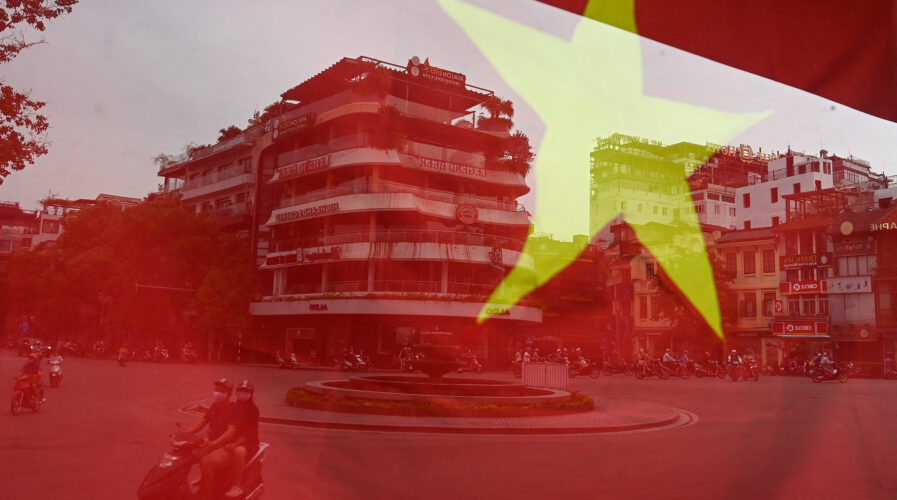
Vietnam has the fastest growing digital economy in SEA: e-Conomy report 2022(Photo by Manan VATSYAYANA / AFP)
Vietnam may soon have a 24-hour take-down law that targets illegal social media contents
- The Vietnamese government is currently preparing a new law that would put a 24-hour timer on any ‘illegal’ social media content.
- It could place Vietnam as one of the leading countries with the most stringent laws for social media platforms at a time when the controlling Communist Party is attempting to decrease any “anti-state” activity.
- If companies fail to meet the upcoming requirements set out by the Vietnamese government, they risk being banned from operating within the country.
Over the past two years, Vietnam has increased its pressure on social media networks to remove politically sensitive content. The government even went to the extent of introducing a new national social media “code of conduct,” which encourages its people to post positive content about the country and prohibits anything that violates the law or affects “the interests of the state.”
After all, over the past two decades, there has been fixation on anti-state content shaping the way Vietnamese authorities deployed various censorship strategies. So if anything, the modus operandi for the authorities has only been widening over time and in their latest move, the government is said to be considering a new set of rules that would require social media firms to take down content it deems illegal within 24 hours.
Citing three people with direct knowledge of the matter, Reuters said the amendments to an existing law will simply cement Vietnam as “one of the world’s most stringent regimes for social media firms”, while strengthening the ruling Communist Party’s hand as it cracks down on “anti-state” activity.
“The 24-hour time frame to take down “illegal content and services” will not have a grace period, while active “illegal live streams” must be blocked within three hours”, Reuters said, adding that companies that do not meet the deadlines could see their platforms banned in the country, they added. These are on top of the requirement for social media companies to take down content that harms national security immediately.
Apparently the amendments are expected to be signed by Prime Minister Pham Minh Chinh next month and enforced from July. While most governments do not have laws imposing the taking down of content on social media firms, Vietnam’s move echoes that of Indonesia and India.
Sources have also told Reuters that Indonesia’s government is preparing to impose a similar 24-hour time frame for government requests. Even in India, government requests are required to be met within 36 hours.
Experts have long noted how Vietnam’s moves are selectively borrowed from China’s online censorship playbook, a key tenet of which is the fear-based approach. However, as Dien Nguyen An Luong–a long-time journalist that authored a book titled “A Study of Vietnam’s Control over Online Anti-state Content”–puts it, “unlike China, Vietnam has not afforded to ban Western social media platforms altogether.”
“Realizing that they would be better off exploiting social media for their own gains, Vietnamese authorities have sought to co-opt and utilize it to curb anti-state content on the Internet. The lure of the Vietnamese market has also emboldened Facebook and Google’s YouTube to consider it fit to acquiesce to state censorship demands,” he added.
Indeed, data from Vietnam’s communications ministry shows that during the first quarter of 2022, Facebook complied with 90% of the government’s take-down requests, Google’s Alphabet complied with 93% and TikTok complied with 73%. Vietnam, as it is, is known to be one of the countries with the highest number of social media users worldwide.
To be precise, tech giant Meta dominates the social media landscape in the country, as platforms Facebook, YouTube, and Instagram account for three out of the five leading active social networks among internet users. The country generates around US$ 1 billion in annual revenue for Facebook and is more profitable than many European markets, according to Reuters.
READ MORE
- Ethical AI: The renewed importance of safeguarding data and customer privacy in Generative AI applications
- How Japan balances AI-driven opportunities with cybersecurity needs
- Deploying SASE: Benchmarking your approach
- Insurance everywhere all at once: the digital transformation of the APAC insurance industry
- Google parent Alphabet eyes HubSpot: A potential acquisition shaping the future of CRM


